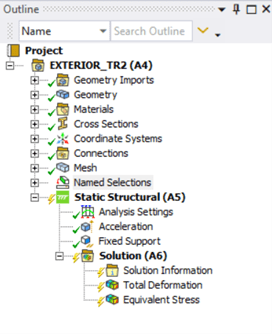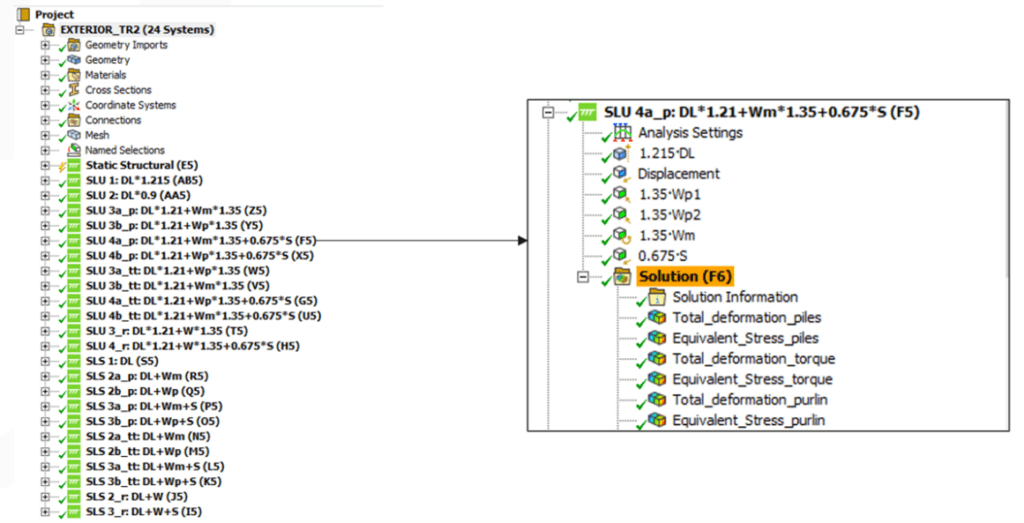Modern industry demands efficiency, precision and speed, especially in the field of mechanical engineering and simulation. Automation has emerged as a crucial answer to these demands, and tools like Python and IronPython are leading this revolution, particularly in environments like ANSYS. In this post, we’ll explore why automation is essential in the area of mechanics and simulation, and how Python and IronPython can significantly transform our processes and outcomes.
The Need for Automation
In the context of mechanical engineering and simulation, traditional processes often involve repetitive and error-prone tasks. Manually configuring models, running simulations, and analyzing results can consume a significant amount of time and resources. This is where automation becomes a critical factor. Some key reasons for the need for automation include:
- Efficiency and Productivity: Automation allows repetitive tasks to be performed quickly and accurately, freeing engineers to focus on more complex and creative problems.
- Error Reduction: Manual processes are susceptible to human error. Automation ensures that procedures are performed consistently and accurately, minimizing the risk of costly errors.
- Scalability: Large projects or projects with multiple iterations can be overwhelming if handled manually. Automation makes it easier to scale these processes.
- Costs: The reduction in development time and the reduction of errors translate into a significant reduction in operational and production costs.
Python: The Automation Tool
Python has gained popularity in the engineering community due to its simplicity, versatility, and power. Its wide range of libraries and its ability to integrate with various platforms make it an ideal tool for automation in mechanics and simulation.
- Ease of Use: Python’s syntax is clear and easy to learn, allowing engineers to quickly adopt this tool without the need for extensive training.
- Powerful Libraries: Python has specific libraries for simulation and mechanics, such as NumPy, SciPy, and Matplotlib, which make it easy to analyze and visualize data.
- Integration: Python integrates seamlessly with simulation software such as ANSYS, enabling the automation of complex and custom workflows.
IronPython on ANSYS
ANSYS is one of the leading tools in engineering simulation and has adopted Python, specifically IronPython, to power its automation capabilities. IronPython is a Python implementation that runs on top of the .NET framework, allowing deep integration with ANSYS.
- Task Automation: With IronPython, users can automate routine tasks within ANSYS, such as configuring models, running simulations, and collecting results.
- Custom Scripts: Engineers can write custom scripts in IronPython to tailor ANSYS to their specific needs, improving flexibility and control over the simulation process.
- Process Optimization: Automation with IronPython allows parametric and optimization analyses to be performed efficiently, exploring a wide range of variables and conditions without manual intervention.
Example of Automation with Python and IronPython in ANSYS
To illustrate the power of automation, let’s consider a practical example. Suppose an engineer needs to perform stress analysis on different components under various load conditions. Manually, this process would involve setting up multiple simulation scenarios, running each one separately, and then analyzing the results. With IronPython, this can be automated as follows:
- Automatic Configuration: Using a Python script, the engineer can define a range of loading conditions and automatically generate the input files for ANSYS.
- Running Simulations: With IronPython, you can automate the execution of all simulations in series, ensuring that each configuration is processed without manual intervention.
- Results Analysis: Finally, the results of each simulation can be extracted and analyzed automatically, generating reports and visualizations that highlight areas of interest or concern.


Conclusion
Automation in the area of mechanics and simulation is not just a trend, but an imperative necessity to stay competitive in modern industry. Python and IronPython offer the necessary tools to transform manual and error-prone processes into efficient, precise, and scalable workflows. Adopting these technologies not only improves productivity and reduces costs, but also opens the door to new opportunities for innovation and optimization.
Explore the power of automation and transform the way you work with ANSYS!
Further information:
For any question or further information request about our services and technologies, please complete the following form:












